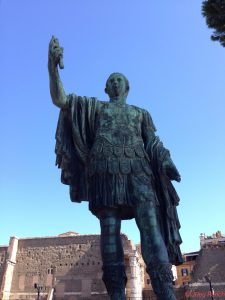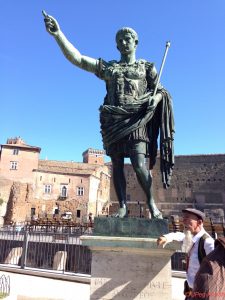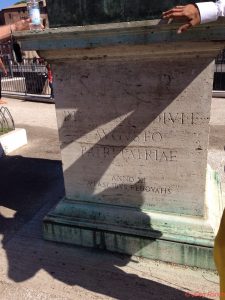
My brother, Philip Redwine, that is Philip spelled with the Biblical one “l”, graduated from the Oklahoma University Law School while I was an undergraduate at Indiana University. When I asked him what he had been taught he told me the entire process boiled down to “learning to think like a lawyer”. When I excitedly quizzed him about that arcane and mysterious subject he replied the whole three years of law school could be summarized by the following story:
“A client asked his attorney for advice as to whether he should file for a divorce. The client told the attorney that each time he tried to climb the stairs to the second floor of the couple’s home his wife would kick him back down. The man said to the attorney, ‘Doesn’t that show she doesn’t love me anymore?’ The attorney reflected on the situation and thoughtfully responded, ‘Either that or she just doesn’t want you upstairs.’”
So, to think like a lawyer means to objectively consider a situation from all sides and apply any relevant analogies to it. After three years of my own legal education at Indiana University, then ten years practicing law and forty years of being a judge, my conclusion is my brother was right and that lawyer-type analysis requires imagination and objective open-mindedness. I respectfully suggest we may want to try this approach to our COVID-19 impacted situation as some of our greatest legally trained presidents might have done. Yes, we must act now but we should do so with wisdom, courage and imagination.
Vision and objectivity have certainly been displayed by several of our greatest non-legally trained presidents. George Washington and Theodore Roosevelt readily come to mind. However, I would like to discuss with you a few of our legally thinking leaders who helped guide us through tough times by having the ability to seize opportunity from crisis by winnowing the wheat from the chaff.
Thomas Jefferson saw the Louisiana Purchase of 1803 and the Lewis and Clark Expedition of 1803-1806 as a means of expanding the United States from the Atlantic to the Pacific and discovering the untold resources of our country. Jefferson did this at a time when most Americans still feared, or too much admired, Great Britain. And he had to maneuver the funding through a skeptical Congress.

Abraham Lincoln was faced with the possibility of California seceding from the Union and with slavery remaining as a state option even if the South were defeated. He boldly issued the Emancipation Proclamation in 1863 and that same year signed the bill funding the Intercontinental Railroad. Lincoln did not live to see the golden spike driven at Promontory, Utah on May 10, 1869, but his use of grants of public lands and issuance of bonds helped preserve the Union he so admired.
Franklin Roosevelt saw the need for a great infusion of public funds for the education and re-employment of our out-of-work Americans during the Great Depression. Thanks to his vision America was much better prepared to respond to Japan and Germany in World War II.
John Kennedy started us on the elliptical route to the moon as financed with public monies. The vast number of jobs, products and conveniences the Space Program brought are still being enjoyed by our citizens.
I do not cite these heroes’ legal training as required for a novel approach to the Novel Virus. Millions of Americans can see that borrowing trillions of dollars to help people for a short time merely delays the pain. A cure requires applying our resources with a long view. We can invest in ourselves for the future while helping those in need now.

One need not be a lawyer to see an issue such as COVID-19 from all sides and apply similar solutions as were used in similar prior crises. President Eisenhower was a West Point trained soldier who planned the greatest military invasion in history and could envision the benefits from a German Autobahn-type interstate highway system for America. And my friend, Warren Batts, is not an attorney but a rock ’n roll musician who suggests we could build a national high speed railway passenger system utilizing the middle portion of our already existing interstate rights-of-way between the separated lanes of traffic.
What we need, from our lawyers and non-lawyers combined, is the vision to prepare for our new society as it will surely be transformed by the Corona Virus. We will be changed but we can transform not regress. New skills can be taught using public funds as we did with the Lewis and Clarke Expedition, the Transcontinental Railroad, the Civilian Conservation Corps and the Space Program.
I realize these are not new ideas. That is my legally thinking point. You, Gentle Reader, will surely have several similar suggestions of your own, which I encourage you to share.


